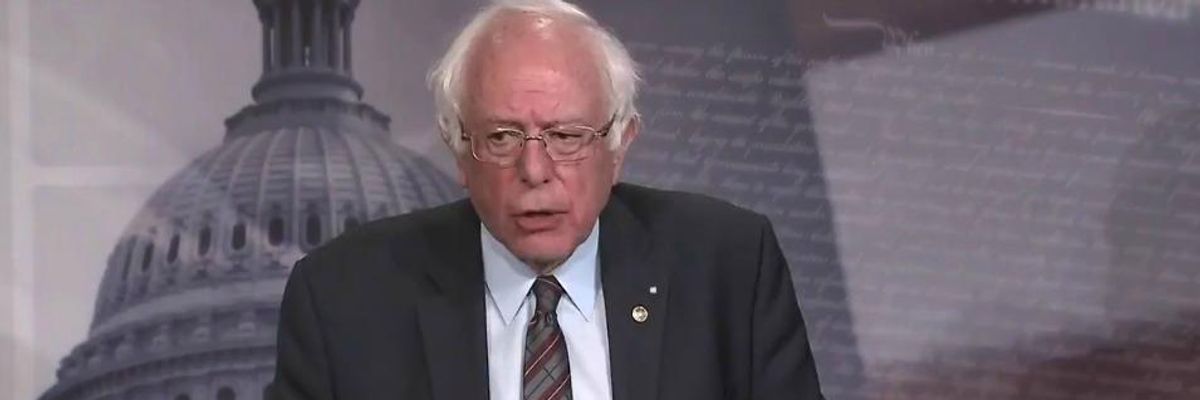Taking aim at Walmart, McDonald's, Amazon, and other ultra-profitable corporations that pay workers so little that they're forced to rely on food stamps and other federal programs to survive, Sen. Bernie Sanders (I-Vt.) and Rep. Ro Khanna (D-Calif.) introduced legislation on Wednesday that would impose a 100 percent "corporate welfare tax" on large companies equal to the amount of public assistance their employees receive.
"We do not believe that taxpayers should have to expend huge sums of money subsidizing profitable corporations owned by some of the wealthiest people in this country. That's what a rigged economy is about."
--Sen. Bernie Sanders"Let us be very clear: We believe that the government has a moral responsibility to provide for the vulnerable--the children, the elderly, the sick, and the disabled," Sanders said in a statement. "But we do not believe that taxpayers should have to expend huge sums of money subsidizing profitable corporations owned by some of the wealthiest people in this country. That's what a rigged economy is about."
Officially titled The Stop Bad Employers by Zeroing Out Subsidies (BEZOS) Act--an explicit dig at Amazon CEO Jeff Bezos, the richest man in the world--the goal of Sanders and Khanna's bill is to draw attention to the fact that taxpayers are effectively subsidizing corporations' starvation wages and pressure these companies to pay a living wage.
"If employers in this country simply paid workers a living wage, taxpayers would save about $150 billion a year on federal assistance programs, and millions of workers would live in dignity and security," Sanders explained at a press conference unveiling the Stop Bezos Act on Wednesday.
Watch the full press conference:
Under the Stop Bezos Act, all companies with over 500 employees--including part-time workers and so-called independent contractors--would be hit with a tax if they don't pay their workers enough to get by without federal assistance.
"This bill would establish a corporate welfare tax on large employers equal to the amount of federal benefits received by their low-wage workers," a summary of Sanders and Khanna's bill notes. "For example, if a worker at a large employer receives $300 in food stamps, the employer would be taxed $300."
Sanders and Khanna unveiled the Stop Bezos Act just 24 hours after Amazon became America's second trillion-dollar company. During his press conference on Wednesday, Sanders noted that Bezos' personal wealth grew by $2 billion on Tuesday alone.
While some have openly questioned whether Sanders' bill is the best way to address the issue of corporate malfeasance and worker inequality epitomized by Amazon, the Huffington Post's Arthur Delaney and Dave Jamieson, who interviewed Sanders ahead of its release, argue that the proposal "isn't really about collecting funds for food stamps or Medicaid -- it's about making a spectacle of the low pay and bad working conditions at profitable businesses."
According to public data obtained by the New Food Economy, thousands of Amazon workers are paid such low wages that they are forced to rely on food stamps to provide for themselves and their families.
"It's time to get Jeff Bezos, the Waltons, and other billionaires who won't pay a living wage off of welfare," Sanders tweeted on Wednesday.
